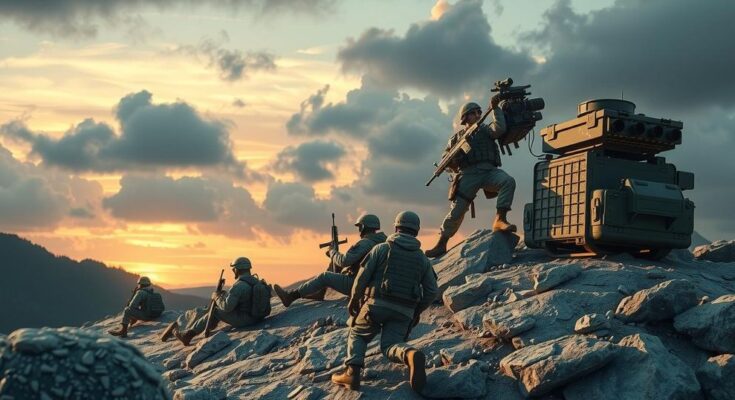North Korea has sent 11,000 troops to Russia, with 4,000 reported dead; these elite forces from the Storm Corps are skilled in sabotage and covert operations. This marks North Korea’s largest military commitment to a foreign conflict, raising concerns about global security dynamics and the costs of such involvement.
North Korea has reportedly dispatched approximately 11,000 troops to Russia, primarily disguised as Russian soldiers with forged identification. Among these forces, about 4,000 are believed to have perished, and more casualties are anticipated. These units predominantly consist of special operations personnel from North Korea’s 11th Corps, also referred to as the Storm Corps, known for their advanced training in infiltration and sabotage tactics.
This significant deployment marks North Korea’s largest military engagement in an external conflict throughout its nearly eight-decade history. Analysts and intelligence agencies from Ukraine and South Korea suggest that many of these soldiers represent the elite ranks of the North Korean military, enhancing the operational capabilities of the forces engaged in the conflict.
Existing data and intelligence reports indicate that the Storm Corps is adept in various clandestine operations, including infrastructure sabotage and targeted assassinations. This illustrates a strategic approach by North Korea to leverage its specialized military forces in the ongoing hostilities, further complicating the geopolitical landscape.
As Ukraine and its allies integrate this intelligence, the international community is observing the implications of North Korea’s involvement in the conflict. The significance of these movements reflects a shifting security paradigm in Eastern Europe, highlighting the interconnectedness of global military dynamics and foreign interventions.
Moreover, the North Korean troop deployment underscores the lengths to which countries may go in supporting allies or pursuing geopolitical goals, even at a potentially substantial human cost. The ongoing situation serves as a critical case study in contemporary military strategy and international relations.
The recent deployment of North Korean troops to Russia has not only revealed the extent of military cooperation between the two nations but also signaled a troubling trend in global military engagements. For the first time, North Korea has committed significant forces to a conflict outside its borders, suggesting a willingness to exert influence beyond its traditional confines. The gathered intelligence from Ukrainian and South Korean sources sheds light on the operational capabilities of these troops and their potential impact on the ongoing conflict.
In summary, North Korea’s military involvement in the Russian-Ukrainian conflict signifies a notable escalation and raises important questions about the geopolitical implications of such actions. With significant troop losses already reported and the use of elite special operations forces, the situation remains fluid and potentially dangerous. The international community must continue monitoring these developments as they unfold, given their implications for regional and global security. Overall, the complexities of this military deployment reflect a broader narrative of alliances and conflicts that shape the current global landscape.
Original Source: www.scmp.com




